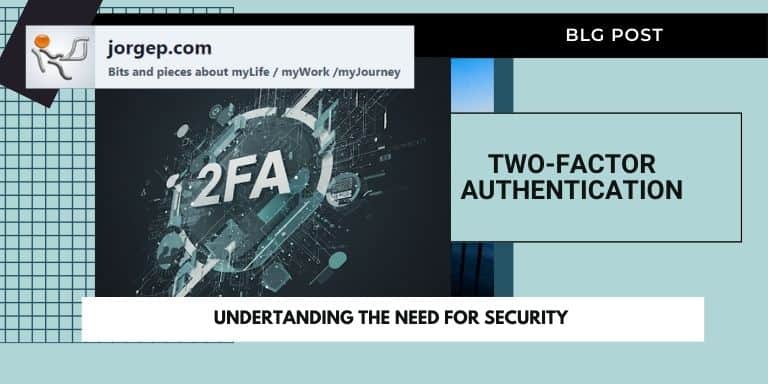Two-Factor Authentication: Beyond Passwords to Protect Yourself

In today’s interconnected world, safeguarding your online accounts is paramount. Two-factor authentication (2FA) stands as a crucial defense against unauthorized access, adding an extra layer of security beyond just a password. While any form of 2FA is a significant improvement over relying solely on passwords, understanding the strengths and weaknesses of each method is essential.
Two-factor authentication (2FA) is a security measure that requires two different methods of verification to access an account, adding an extra layer of protection beyond just a password
Why is 2FA so important?
Understanding the importance of 2FA hinges on recognizing the inherent vulnerabilities of passwords and the ever-present threat of account takeover.
- Password Vulnerability: Passwords, even strong ones, can be compromised through data breaches, phishing attacks, or sophisticated hacking techniques. 2FA acts as a safety net, requiring a second form of verification even if your password is stolen.
- Account Takeover Prevention: 2FA makes it significantly harder for malicious actors to gain access to your accounts, preventing identity theft, financial fraud, and data breaches.
- Enhanced Peace of Mind: Knowing that your accounts are better protected provides a sense of security in an increasingly digital world.
Understanding the 2FA Methods:
Choosing the right 2FA method depends on your individual needs and risk tolerance. Regardless of the method you choose, implementing 2FA is a vital step in protecting your digital identity. By understanding the potential risks and taking appropriate precautions, you can significantly enhance your online security.
Understanding 2FA Methods: A Quick Guide
| Method | Description | Pros | Cons | Protection Tips |
|---|---|---|---|---|
| SMS Text Messages | Verification codes sent via SMS to your mobile phone. | Widely accessible, easy to use. | Vulnerable to SIM swapping, phishing, and telephone company breaches. | Contact your provider for added security, protect your phone, be wary of phishing. |
| Authenticator Apps | Time-sensitive codes generated by apps (e.g., Google Authenticator). | Offline functionality, reduced vulnerability to SIM swapping. | Device loss/theft, account compromise, susceptibility to phishing if codes are entered on fraudulent websites. | Secure your device, back up settings, be wary of phishing. |
| Hardware Keys | Physical keys creating a unique cryptographic link to your account. | Highly resistant to phishing, strong authentication. | Physical loss/theft, potential cost. | Protect your physical key. |
| Hardware Key + Biometrics | Hardware keys combined with biometric verification (fingerprint, etc.). | Enhanced security, convenience. | Physical loss/theft, potential cost, reliant on the biometric function working. | Protect your physical key, ensure biometrics are correctly configured. |
| Password + Biometrics | Using a password and a biometric factor for authentication. | Enhanced security. | Relies on biometrics being correctly configured and working. | Ensure biometrics are correctly configured. |
Tailoring Your 2FA: Choosing the Right Protection for Your Needs
Not all online accounts are created equal. Some, like your bank account or email, hold extremely sensitive information, while others may be less critical. This means your 2FA strategy should be flexible, adapting to the value and sensitivity of the data you’re protecting.
Why One Size Doesn’t Fit All:
- Varying Risk Levels: A social media account might not warrant the same level of security as your financial accounts.
- Convenience vs. Security: Balancing convenience with security is crucial. For frequently accessed, less sensitive accounts, a simpler method might suffice.
- Account Value: Accounts with high value or sensitive data demand the strongest possible protection.
Considerations:
- Your Risk Tolerance: How much risk are you willing to accept?
- Accessibility: Choose methods that are convenient for you to use regularly.
One example that has gotten me in the past is travel overseas where SMS or internet access is blocked or unavailable! - Recovery Options: Ensure you have robust recovery options in case you lose access to your 2FA method.
Matching 2FA to Your Needs:
|
Type of Asset to Protect |
Recommended Protection |
|---|---|
|
High-Value Accounts (Banking, Email, Password Managers): |
|
|
Medium-Value Accounts (Social Media, Online Shopping): |
|
|
Low-Value Accounts (Forums, Less Critical Services): |
|
By carefully considering the value of your accounts and your personal risk tolerance, you can create a tailored 2FA strategy that provides optimal security without unnecessary inconvenience.

